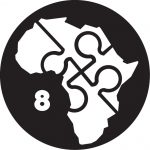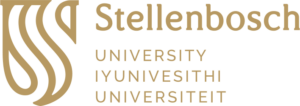Sustainable Development
at STELLENBOSCH UNIVERSITY
Sustainability contributions
SDG 16: Peace, Justice and Strong Institutions
SDG 16
South Africa is perceived as a dangerous place with many people believing that crime is increasing and many crimes go unreported. Trust in institutions is key if we want to create a peaceful and prosperous society.
Universities can lead by supporting institutions and leading research on law and the relationships between citizens and organisations. The Universities can be transparent and promote educational freedom.
SDG 16 is linked to inequality (SDGs 5 and 10) and can strengthen institutions that deal with all the SDG outcomes. It corresponds to the following Agenda 2063 Goals: Goal 11: Democratic values, practices, universal principles of human rights, justice and the rule of law entrenched; Goal 12: Capable institutions and transformed leadership in place at all levels cross-cutting with Governance; Goal 13: Peace, security, and stability are preserved; Goal 14: A stable and peaceful Africa; and Goal 15: A fully functional and operational African peace and security architecture.

Goal 8
United Africa (federal or confederate)

Goal 11
Democratic values, practices, universal principles of human rights, justice and the rule of law entrenched

Goal 12
Capable institutions and transformed leadership in place at all levels, cross-cutting with Governance

Goal 13
Peace, security, and stability are preserved

Goal 14

Goal 15
A fully functional and operational African peace and security architecture
There are a range of programmes at Stellenbosch University that contribute towards SDG 16: Peace, Justice, and Strong Institutions and AU Goal 11: Democratic values, practices, universal principles of human rights, justice and the rule of law entrenched; Goal 13: Peace, security, and stability are preserved; Goal 14: A stable and peaceful Africa and Goal 15: A fully functional and operational African peace and security architecture. For more information, see the Division of Social Impact’s Platform for SDG 16.
University Governance
The Stellenbosch University Council has members that are elected by the Student Representative Council (SRC) and members that are elected by staff (academic and non-academic staff elect separate representatives).
Stellenbosch University is committed to giving its students a voice in the growth and transformation of the University. Students elect their SRC through annual elections. The SRC has a position in the highest governing structures of the University, namely the Council, Senate, and the Institutional Forum. SRC members are also part of Faculty Boards and various other committees. Tygerberg Campus and Saldanha Campus have their own SRCs, members of which are ex-officio members of the Council. Furthermore, the SRC appoints managers to facilitate administrative portfolios, namely:
- Arts and Culture (KUKO)
- Sport
- Branding
- Womxn and Queer Empowerment
- Marketing
- Leadership Development
- Safety and Security
- Special Needs
Students from the various Faculties also form the Academic Affairs Council (AAC), whose functions include being part of the Academic Planning Committee and the Learning and Teaching Committee.
The Stellenbosch University Council includes members that are elected by the convocation (alumni of Stellenbosch University), members appointed by the Stellenbosch Municipality and the Western Cape Government.
In 2019, Stellenbosch University instituted a new Anti-Corruption and Anti-Bribery Policy. The policy informs students and staff on recognising corruption and bribery and outlines what to do when faced with a situation they consider inappropriate.
Stellenbosch University also has a Research Policy in place, which states that the University encourages academic freedom for all researchers and that the University will respect and promote the freedom of researchers.
The University publishes the financial report within the annual report and includes data on the income and expenditure of the University.
Through the Centre for Local Governance, Stellenbosch University offers academic programs and training to all three spheres of government (national, provincial, and local). The Centre conducts extensive consultation with government officials to ensure that the educational services that are being offered are relevant and are addressing problems that need to be solved (Link). Stellenbosch university collaborates with governmental bodies regarding research under several Memorandums of Understanding (MOUs). Through these MOUs, the University aims to develop the human and infrastructure potential of several South African regions.
University Dialogue on Anti-Corruption and Integrity
The Faculty of Law at Stellenbosch in 2021 established a regional Centre of Excellence in Integrity, Human Rights and Laws of Conflict. The Centre will work towards a global dialogue event that will feature world leaders on anti-corruption, integrity and rule of law in Africa on a single platform, by 2024. At the same time, it will lead towards capacity development by training investigators, prosecutors, internal auditors, compliance officers and other role players to implement anti-corruption and integrity programmes as well as short courses on in counter-corruption, laws of conflict and related fields of law, to help counter corruption and improve adherence to laws of conflict globally. Watch this interview with Prof. Geo Quinot outlining the reasoning of the establishment of the dialogue from December 2021.
SU Transformation office
The SU Transformation office supports these initiatives through their work (more info).
